China’s sweet talk to attain Pacific domination will fail
Beijing’s plan to corral ten Pacific Island countries into an exclusive grouping is a daring attempt to take control of the region.
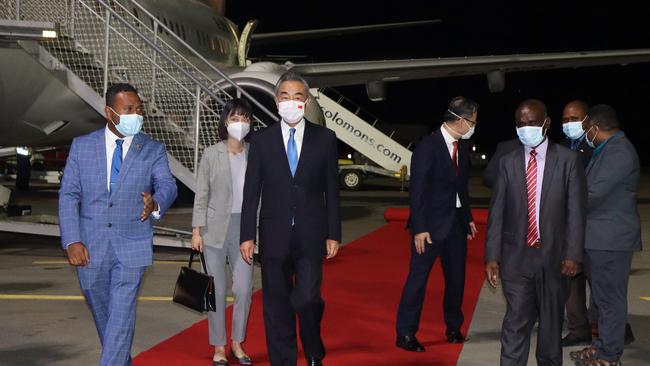
The coup will fail. Most Pacific Island leaders are astute, patriotic and brave enough to resist Chinese Foreign Minister Wang Yi’s suffocating sweet talk. Pacific leaders will understand that Beijing’s money comes at the price of losing sovereignty, the support of their own people and their own self-respect.
China’s communist elite would more effectively dominate the region if they better hid their contempt for other countries. Well before starting his 10-nation tour Wang had circulated the “concluded” outcomes of next Monday’s Pacific foreign ministers summit, and a five-year plan that will strengthen “co-operation in the fields of traditional and non-traditional security”.
This is how Beijing operates. There is no pretence of a negotiation between equals. The Pacific Islands can have “harmonious relations” and “win-win outcomes” only if it follows China’s lead in every detail.
Beijing was trying to shape its relationship with Australia in the same way before Covid. In May 2010, as Defence’s deputy secretary for strategy, I was involved in the visit to Australia of one of the People’s Liberation Army’s most senior generals, Guo Boxiong, vice-chairman of the Central Military Commission.
The communique released after the visit claimed that “the two sides exchanged in-depth views on state-to-state and military-to-military relations and on issues of mutual interest”.
We did nothing of the sort. Over a day of talks at Defence’s Russell Headquarters, the Australian side attempted to shape a plan for defence activities for the coming year. A decade ago the forlorn hope was that practical co-operation would make the PLA a more amenable partner.
We failed to get Guo to agree to defence activities designed to promote the rule of law in the region. The general dismissed any more discussion and with a chuckle pushed a piece of paper across the table. “This is what we’ll do.”
It was a list of highly stylised contacts, more photo opportunity than defence training or exercising. Military music featured heavily.
In time we would establish a “Military Friendship and Culture Week” to “demonstrate the growing relationship between the Australian Defence Force and People’s Liberation Army”.
In September 2013, the People’s Liberation Army Band arrived to play concerts with the Australian Army Band, showing “Australia and China growing understanding and friendship through music”.
It is easy to see when one is being treated with contempt. In Defence we all knew that the pretence of military co-operation with China was a sham.
Pacific leaders will know in their hearts that Beijing wants this agreement because the Pacific Islands are strategically valuable to the PLA. This has nothing to do with respect for Pacific people or a commitment to their interests.
Controlling the islands complicates American military access to the Western Pacific. That remains just as true today as it was in the Pacific War, when the US had to retake island groups in Melanesia and Micronesia as it fought closer to the Japanese mainland.
Xi Jinping’s aim is to weaken America’s dominant military position in the Pacific Ocean, weaken America’s allies and make contact between them harder.
Unlike in the South China Sea where Beijing literally built islands on which to establish military air bases and ports, in the Pacific there is no need to build islands when you can simply buy ones already there or, more accurately, co-opt some leaders with financial inducements, soft loans and lavish trips to China.
One Pacific leader has already dismissed Beijing’s proposed “comprehensive development vision”. The President of the Federated States of Micronesia, David Panuelo, said the agreement would allow China to “acquire access and control of our region”.
The FSM is close to the US under a Compact of Free Association and not on Wang’s itinerary, but Panuelo’s concerns will be shared by numerous island leaders.
At best, Beijing’s summitry may yield a few Pacific Islands countries willing to sign up. That could fracture an already damaged PIC tradition of seeking regional consensus through extended negotiation.
Over the longer term I hope Beijing’s attempts to subvert the Pacific Islands will not be successful. Just like in Africa, the Caribbean and elsewhere, the Chinese Communist Party fails to win many Pacific hearts and minds.
It is notable that when instability hits Solomon Islands, Papua New Guinea, Tonga and elsewhere, it’s often the local Chinatowns which are unjustly put to the torch. Conservative churchgoing Pacific Islanders do not warm to the CCP and object to their own elites being compromised.
The shorter-term risk, however, is that some PIC leaders may choose to follow the lead of Solomons Prime Minister Manasseh Sogavare. A region that’s politically split is almost as useful to Beijing as controlling the whole area because it limits the capacity of the Pacific Islands Forum and other regional mechanisms to build a shared response to China.
Penny Wong’s visit to Suva could not be more timely. Wong is not correct to say that Australia has had a “lost decade” in the Pacific. Australia remains the partner of choice for many PICs, and we have natural advantages in people to people relationships which Beijing cannot match.
That said the region needs sustained and senior level attention from government and a willingness to think creatively about rebuilding our once-prominent position there.
The Labor government’s announcement of more development assistance, although welcome, is more of the same approach used over decades. It has done little to arrest our relative decline in influence.
Let’s think instead about finding ways to encourage Australian business back into the region with tax offsets. Let’s harness Australian churches to build ties with Pacific counterparts and Australian religious schools to offer funded places to Pacific children.
I have written earlier that some Australian naval bases in the region would be welcomed. We could help shape a region wide multinational Pacific response force, offering a humane option for PIC military and police forces than the riot training and mass surveillance techniques offered by the China.
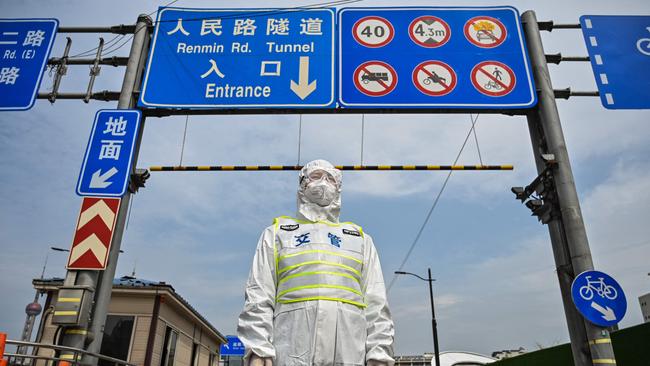
Labor is right to plan to reform and expand the Pacific Australia Labour Mobility scheme. The thinking needs to be big. Australia has deep workforce shortages that the PIC’s can help solve. By contrast one of the PIC’s biggest problems is chronic underemployment.
There is everything to be gained by looking at options designed to help each other. Beijing is not in this game. An overreliance on China would put the Pacific Islands into a dangerous world some years down the track when co-opted island elites could face their own colour revolutions from local populations angry that wealth is not being shared.
At that point is it inevitable that Australia will be the country the region calls on to help stabilise dangerous situations while Beijing just flies out its nationals?
Beijing’s attempted Pacific coup and the Quad leader’s meeting in Tokyo last week are connected by Xi’s greatest ambition: forcing Taiwan under communist control while Xi is leader.
For the third time as President, and notwithstanding the disgraceful attempts by White House staff to “correct” his remarks, Joe Biden has said that the US will defend Taiwan if Beijing attacks it.
Xi is preparing his country for that very task. He wants the option to use force if coercing Taiwan fails.
It’s not hard to link that to the suddenly urgent PRC interest in locking the Pacific Islands into an exclusive security grouping. A Pacific Islands region that becomes used to the presence of multiple PLA ships, submarines, combat aircraft and intelligence gathering equipment presents a massively complicating problem for an America and its allies intent on helping to defend Taiwan.
There will be Australians, perhaps like West Australian Premier Mark McGowan with his call for the Labor government to “become more diplomatic and more sensible in relation to our dealings with China”, who may be astonished to see a connection between Beijing’s Pacific strategy and what they aspire to do to Taiwan.
We can talk as softly as we like. Nice words won’t change Xi’s intentions, although they may encourage him to think he can hoodwink the gullible while he strives to dominate the region.
Peter Jennings is the former executive director of the Australian Strategic Policy Institute and a former deputy secretary for strategy at the Defence Department.


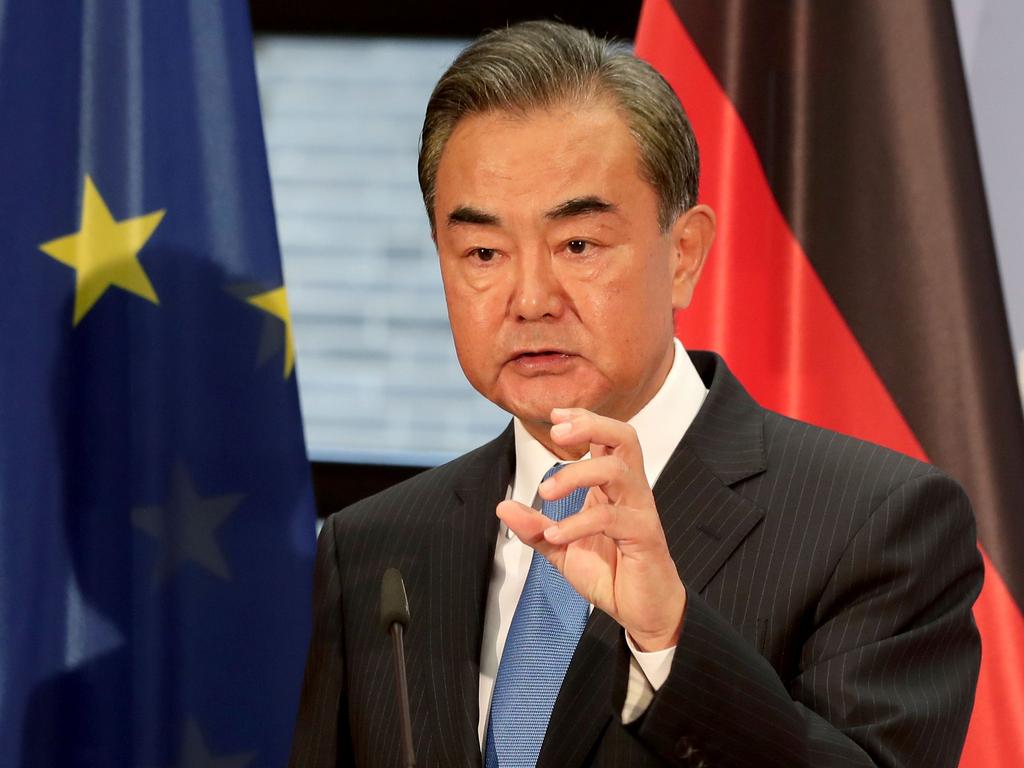
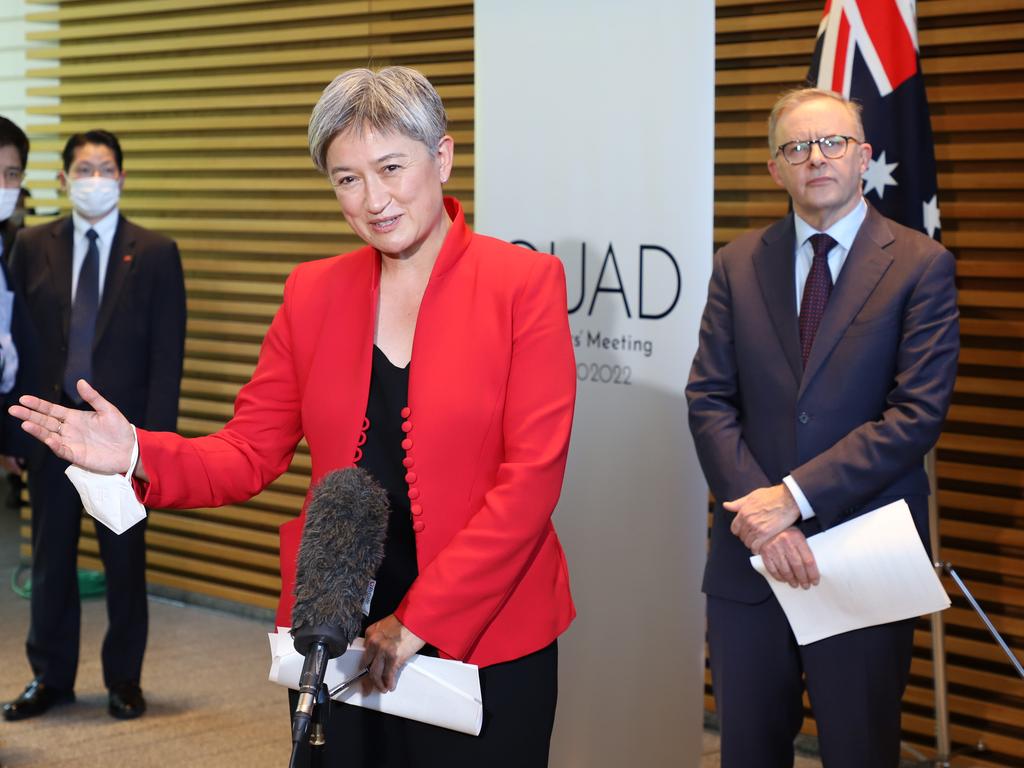
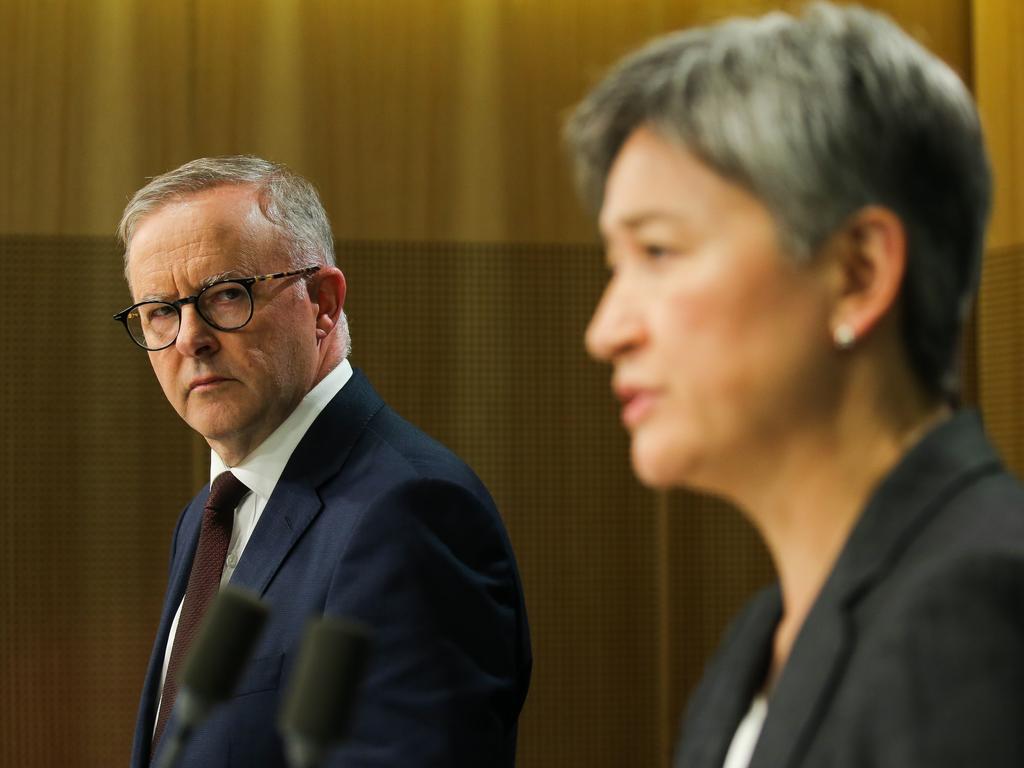
Beijing’s plan next week to corral ten Pacific Island countries into an exclusive grouping, where China provides policing, cyber and security “assistance”, is a daring attempt to take control of the region.